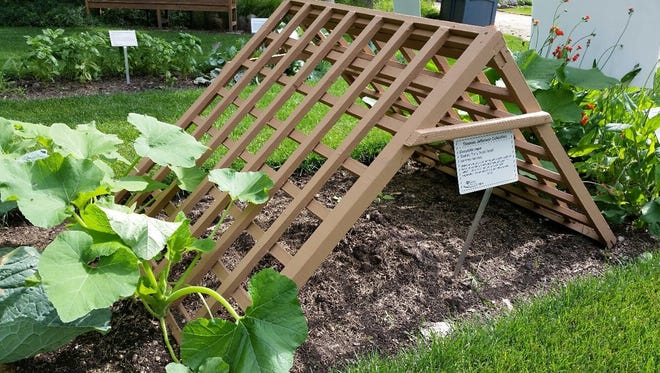What Can I Add To My Soil This Fall To Get Rid Of Any Excess Fungus In My Garden Soil

Rain is a welcome treat for many plants; however, too much rain during the summer months can cause plenty of problems in the garden.
Plant diseases like bacteria and fungi flourish from prolonged leaf wetness and excess moisture around the plant root zone areas. Too much rain and overcast skies can slow the plant's growth and affect the blossom production. Heavy rain leaches nutrients in the soil and can trigger nutrient deficiency, affecting the plant growth.
Foraging insects like bees and native pollinators may find it challenging to travel long distances during wet periods in search of pollen and nectar. Overly wet soil can also limit the accessibility to enjoy daily walks in the garden, and it can take several days for the water to drain in heavy soil.
Though we can't stop the rain and it may not be practicable to install a rainproof tent on the garden, there are some preventive measures that can be adapted to minimize the effect of too much moisture on the plant growth.
Avoid walking on wet garden soil, especially between the plant rows, as it can compact the soil and limits the plant root growth. Spreading light mulch like bark chips or installing steppingstones in the main aisle can provide accessibility to your garden beds with minimum disturbance to the soil.
If your garden bed is in a standing water area for a prolonged time, it's best to build a raised bed with compost, peat and perlite mixture (1:1:1) and start with new plantings. Many vegetable crops are sensitive to excess moisture and can succumb to root rot infection. Symptoms of root rot include stunted growth, wilting, and plants may show a nutrient deficiency disorder like yellowing of leaves. Seeded crops like pumpkin, sunflower, squash, sweet corn and beans may not germinate under saturated soil.
If your garden bed is in a low-lying area, place a barrier across the slope to divert the water or build a trench to channel the excess water away from the garden bed.
Monitor your plants for any signs of disease infection. Common signs of leaf infection in vegetable crops includes leaf spots, blight (large patches of browning), and white powdery spores either on upper or lower surfaces of the leaves. Remove the infected leaves and get it diagnosed immediately at your local UW-Extension office. Timely application of preventive fungicide is crucial to minimize the spread of fungal disease on the plant.
Spread a couple of layers of newspaper sheets covered with a thin layer of mulch on top around the base of your tomato, pepper and eggplants to prevent the soil from splashing up on the lower leaves and stem. Trim any lower sets of leaves that are too close to the soil surface. This helps in minimizing the spread of disease spores from the soil surface and allows better air flow movement near the base of the plant.
Rake any excess mulch around the base of the plants. Keep the mulch to a maximum of 1-2 inches deep to prevent soil erosion during wet periods. Excess mulch can prolong the soil wetness and can lead to root rot infection.
Train your vine crops including tomatoes and cucumbers in a trellis or cage system to increase air flow movement around the plant. Provide stakes to support delicate plants from strong winds and rain.
Hold off in applying any fertilizer or pre-emergent herbicides around your vegetable crops if there is a forecast of heavy rain in the next 24 hours.
Slugs like to shelter in damp areas, so it's best to remove any of their hiding spots like wooden boards, flat stones or large wood chips in the garden areas.
Vijai Pandian is horticultural agent/educator for Brown County University of Wisconsin-Extension. For questions and advice, contact the Extension's Horticulture Help Desk at 920-391-4615.
What Can I Add To My Soil This Fall To Get Rid Of Any Excess Fungus In My Garden Soil
Source: https://www.greenbaypressgazette.com/story/life/2017/06/23/how-deal-too-much-rain-garden/423886001/
Posted by: williamsannot1974.blogspot.com

0 Response to "What Can I Add To My Soil This Fall To Get Rid Of Any Excess Fungus In My Garden Soil"
Post a Comment